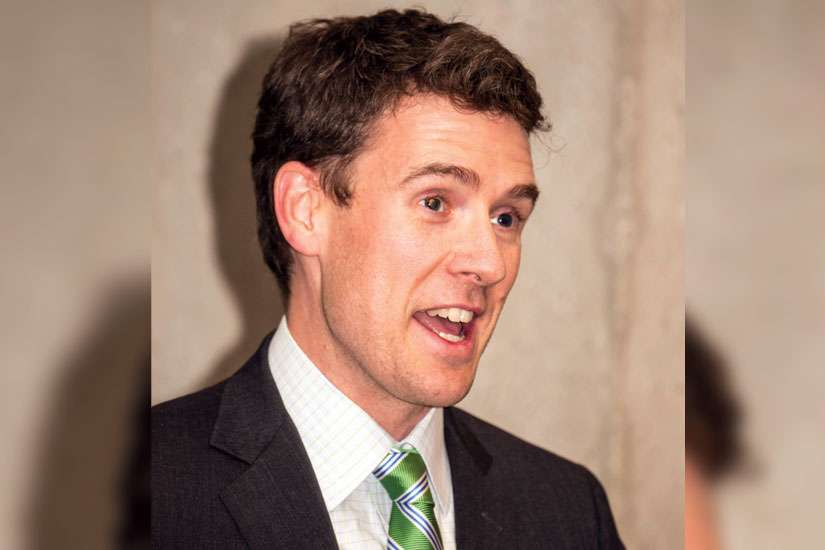“As a Catholic, this has very much become part of my vocation, the defense of religious freedom and the promotion of a robust understanding of human dignity,” Bennett said in an interview.
“I will find ways to continue to be involved,” whether as ambassador or not.
Bennett’s contract expires towards the end of February. As of late January he had not met with Foreign Affairs Minister Stephane Dion to discuss whether he will continue as ambassador, or, for that matter, whether the Office of Religious Freedom instituted by the previous Conservative government will remain.
In the mandate letter to Dion released shortly after last October’s election, there is no mention of religious freedom as a priority. While there is a nod to diversity and pluralism within Canada, the mandate’s international focus aims to “increase Canada’s support for United Nations peace operations and its mediation, conflict-prevention and post-conflict reconstruction efforts.”
For Bennett, understanding the religious dimension is key to conflict resolution and peace. Highly secular societies like Canada or Western Europe are “outliers” in a world where religion plays a huge role in every facet of life, he said. Religion informs not only cultural discourse, social and economic action, but also “a whole way of looking at the world.”
“When engaging in international relations, if we are not able to be conversant in the language of religious faith” and with how people relate to the world and within their own countries, “then we really have a serious diplomatic blind spot,” he said.
Over the past three years, he has helped to equip his colleagues “with the tools and language they need” to engage religious communities in a “good, nuanced” and “winsome fashion.”
The office has also funded a number of projects overseas to promote religious freedom in countries such as Nigeria, Pakistan, Sri Lanka, Ukraine, Myanmar and Bangladesh, with various partner groups in those countries.
Bennett sees two particular areas that need special attention. First, Canadians in general and foreign service personnel in particular “need to have a much deeper understanding of Islam,” he said. This would include learning about the Sunni and Shia branches of Islam and the conflict between them, of the differing schools and branches within Sunni Islam, of the great diversity within predominantly Muslim countries such as Indonesia, Bosnia and Morocco, and of the many differing actors within Islam. This understanding has to go “beyond addressing questions around stabilization and countering violent extremism,” he said.
Canadians can engage more fully if they have “knowledge of some of the fundamental beliefs” and structures, he said, noting that as the Canadian Muslim community continues to grow and “become an integrated part of Canadian life,” that worldwide diversity is mirrored at home.
Second is the challenge of addressing the worldwide persecution of Christians, he said.
“We must not shy away from talking about this issue,” he said.
Being frank about the degree of Christian persecution does not detract from the persecution suffered by other religious minorities, such as Yazidis, he said. Studies from organizations such as the Pew Forum and Aid to the Church in Need, and statements by Rabbi Jonathan Sacks and Pope Francis show “the situation in the Middle East and in Africa is acute.”
Canada needs to be “much more robust in championing the plight of persecuted communities,” especially that of ancient apostolic churches “facing a serious existential threat to their very existence” in the Middle East, he said.
Bennett said the past three years as Religious Freedom Ambassador have given him a “greater humility” given the scope of the problems and challenges in some parts of the world that will require “multi-generational commitments by people of goodwill” to bring about respect for human dignity and religious freedom that will end persecution of minorities for their beliefs.
“We’ve only just begun,” he said, noting he was speaking “without prejudicing the decision Minister Dion might choose to take.”
“We still have as human beings and as Canadians a responsibility to help these people,” he said.

